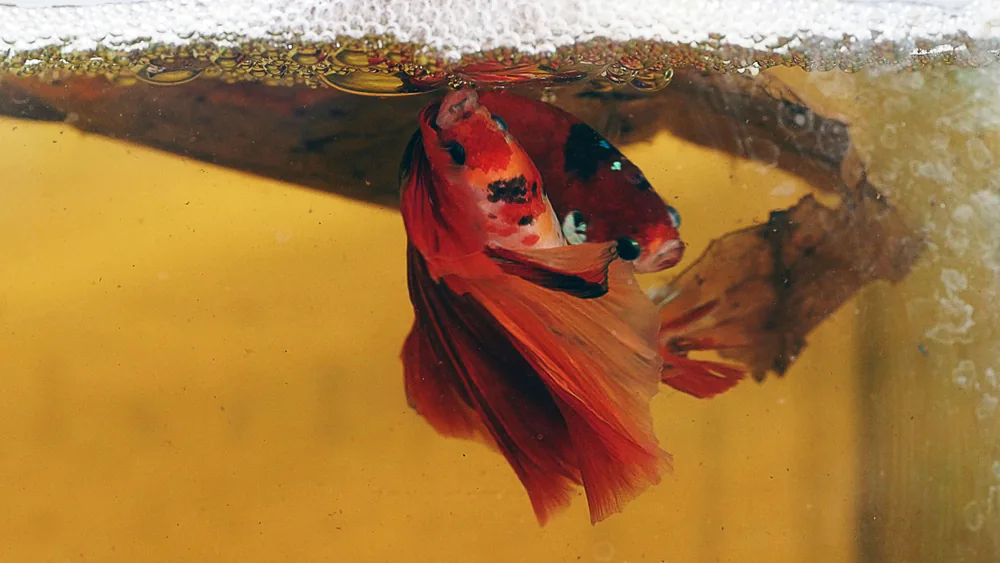A lot of fish lovers enjoy keeping betta fish. But not many know how to find the right temperature for the Betta fish tank. In this article, we will talk about the ideal water temperature for your Betta tank and how to maintain it at optimal conditions.
- 1 Ideal Betta Fish Water Temperature
- 2 Are Betta Fish Sensitive To Water Temperature?
- 3 What Is The Lowest Temperature A Betta Can Tolerate?
- 4 What Is The Highest Temperature A Betta Can Tolerate?
- 5 Why Does The Temperature Need To Stay Constant In Betta Fish Tank?
- 6 How Can You Keep The Betta Tank Temperature Constant?
- 7 Signs That Your Betta Fish Water Temperature May Be Off Balance
- 8 What Can You Do If The Water Becomes Too Warm?
- 9 What Diseases Can I Expect To See If Water Temperature Is Not Ideal?
- 10 Wrapping Up
Ideal Betta Fish Water Temperature
The ideal temperature for betta fish is around 75 to 76 degrees Fahrenheit. The most important thing to remember is that the temperature of your bowl or aquarium should be maintained at this temperature, which may vary from tank to tank if you have multiple bettas in one aquarium.
Are Betta Fish Sensitive To Water Temperature?
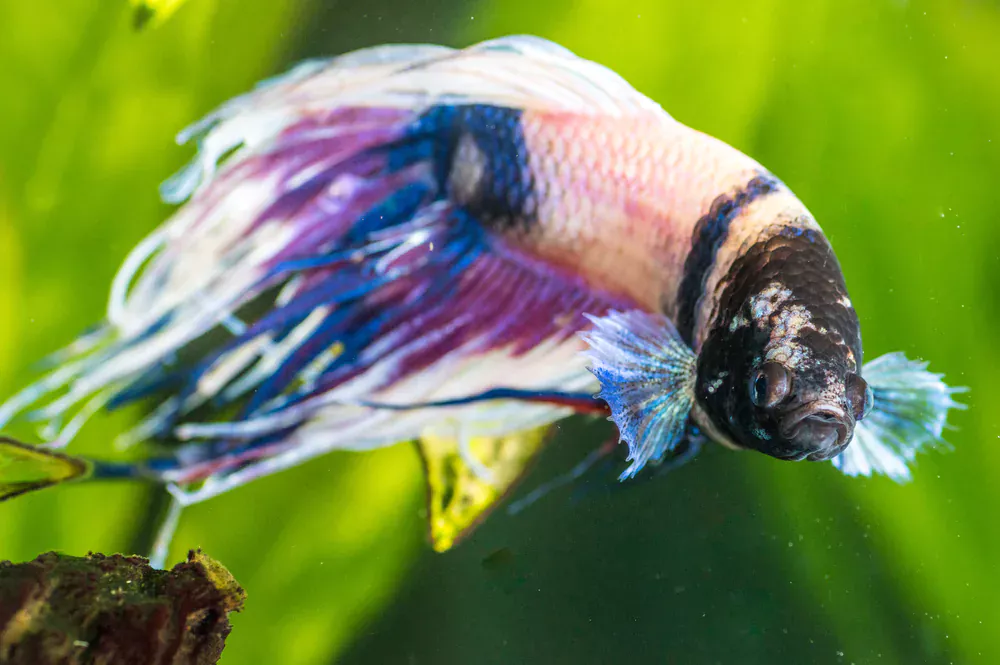
Betta fish are very delicate creatures and they can be easily stressed when their water gets too hot or cold. Betta fish have very sensitive mouths that allow them to feed on small insects, so they need to be kept at a certain temperature. If their water is too cold, they will not be able to survive in it. The same thing goes for high temperatures. They may not be able to stay alive if their water is too hot.
What Is The Lowest Temperature A Betta Can Tolerate?
The lowest temperature a betta can tolerate is 74°F. That’s the lowest temperature that you can safely maintain your betta in their tanks. If you keep them at this temperature, they will be fine. The only thing that could cause harm would be if they were put in a room that was below 74°F, but as long as they stay above 74°F, they will be fine. If you do decide to keep your bettas at 74°F, make sure you provide them with a quality diet, it will help their metabolism.
What Is The Highest Temperature A Betta Can Tolerate?
The highest temperature that a betta can tolerate is 78°F. Beyond this temperature, your fish will start experiencing severe stress and may even die. This can happen because the temperature is too high for the fish to handle and their body doesn’t have time to adapt.
Why Does The Temperature Need To Stay Constant In Betta Fish Tank?
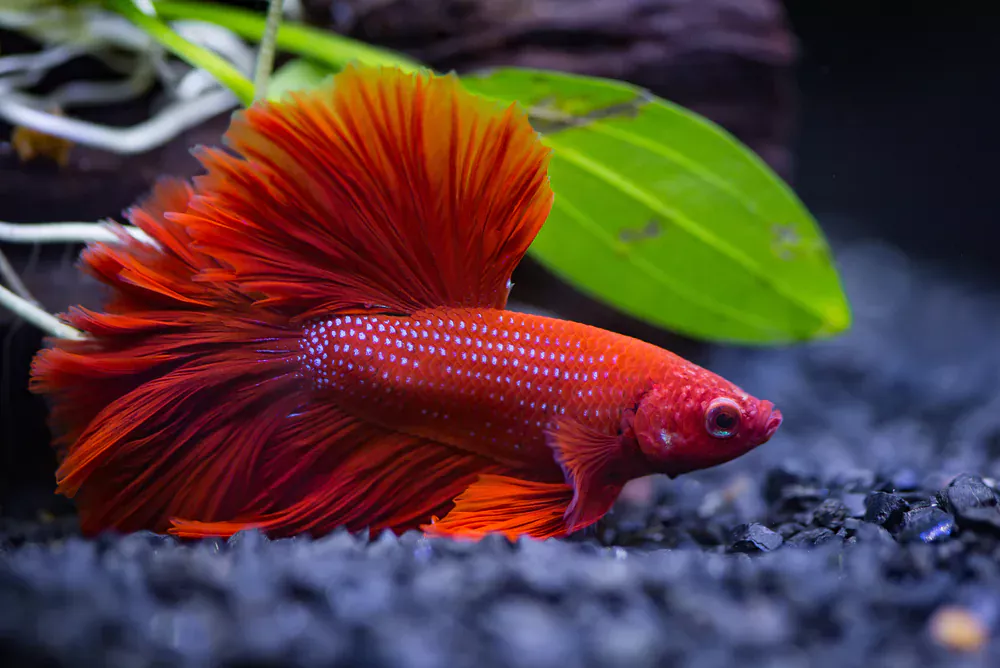
There are several reasons why you should always maintain an almost constant water temperature and prevent it from fluctuating. A few of those reasons are mentioned here:
1- Water Temperature Affects Metabolism & Overall Health
Water temperature affects metabolism, which means that it affects how fast your betta’s body functions. As the water temperature rises, your betta’s metabolism also rises, which means it can burn up to 20% more energy at a higher temperature than at a lower one. This is probably why you need to make sure that the temperature in your betta tank stays between the ideal range.
2- Temperature Makes a Difference in Survival Rate
Temperature affects how well the fish can survive and thrive in their environment. If the water temperature is too high, they will not be able to maintain proper body temperature and will die. If it is too low, they may freeze and die. However, if the water temperature is just right, bettas can live a long and healthy life.
3- It Affects The Growth Rate
The other reason that temperature matters is that it can affect how quickly they grow and develop their colors (and other features). The higher their body temperatures are, the faster they grow and develop their colors. However, if their body temperatures are too low or too high, then they may not reach their full potential as fast as they would like.
4- Fish May Suffer from Sickness
The temperature needs to be constant in a Betta fish tank for the fish to be healthy. If you have a Betta fish tank that has a temperature change, it can affect the fish’s health. This is because different temperatures may affect the levels of certain hormones that regulate the body functions of the fish
How Can You Keep The Betta Tank Temperature Constant?
1- Use a thermometer to measure the temperature of the water in your tank.
2- Keep your tank away from direct sunlight, heating vents, and other sources of heat.
3- Place a fan in front of the aquarium to circulate air around the tank and keep it cool.
4- Use an under gravel filter that is large enough to catch debris as small as 1/8-inch in diameter (the size of a pencil eraser).
5- Change 20 percent of water in your tank every week, using bottled or distilled water instead of tap water unless it comes from your own well or spring.
6- Do not add any chemicals such as chlorine or shock treatments to your aquarium without consulting your veterinarian first because they can harm your fish and cause stress in them.
Signs That Your Betta Fish Water Temperature May Be Off Balance
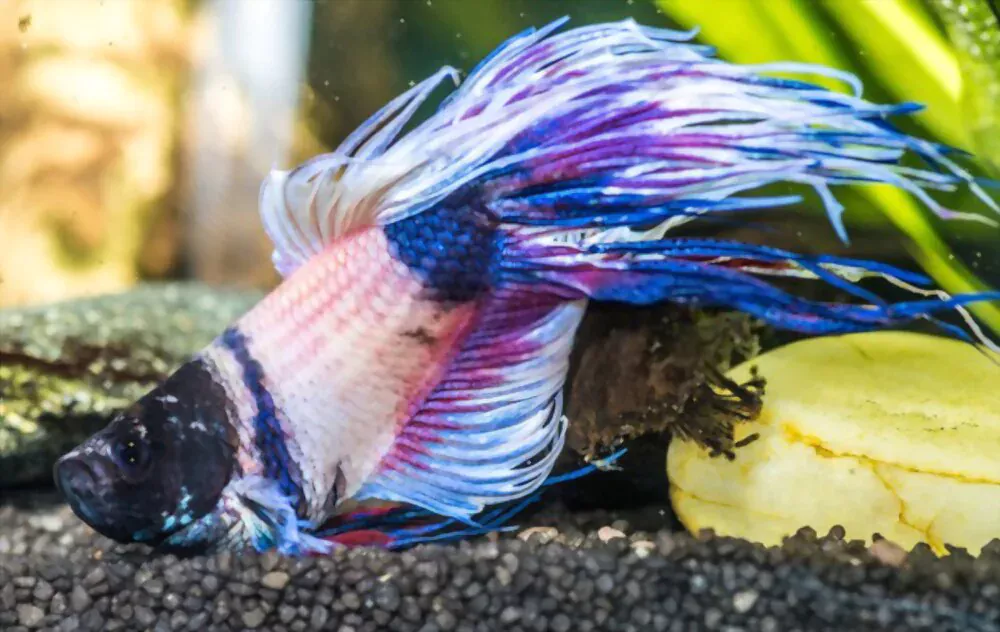
There are a few signs which will help you determine whether your betta fish water temperature is balanced or not. A few of those signs are:
1- Your Pet Betta Is Showing Signs of Lethargy
If your Betta fish’s water isn’t at the correct temperature, it could cause your pet to feel lethargic. Although some fish are more tolerant of cold water than others, a shift in temperature can send them into a tailspin. If you notice any change in your Betta’s behavior after adding or removing heaters from its tank (such as fins sticking out or an increase in appetite), it may be time to check the water temperature.
2- Your Pet Betta Is Suddenly Swimming Fast and Erratically
One of the first signs that your betta may have an imbalance in his water temperature is when he suddenly starts to swim fast and erratically. This could indicate that something has changed with his water since it was last checked or it could mean that something else has changed in his environment such as the temperature of the room where he lives or how clean the tank is kept.
3- Your Pet Betta is Having Problems Eating
Is your Betta not eating? This can be a sign that the water temperature is off balance, or even too hot for your fish. If you notice that your pet isn’t eating well, it could be an indicator that their water has become too hot. In some cases, this may indicate a problem with the heater in the tank, or it may mean that there is something wrong with their diet. Either way, there are steps that you can take to ensure that they are able to eat normally again.
4- Your Pet Betta Looks Pale or Color-Washed Out
If you’ve ever noticed that your pet betta has a watery, dull look to its body, there’s a good chance his water temperature is off balance. A few days of neglecting to change out the water in his tank can cause these symptoms, and it’s usually the result of leaving a fish tank empty for too long.
What Can You Do If The Water Becomes Too Warm?

Here are a few things that you can do if the water temperature becomes too warm:
1- Turn Off Any Lights
The heat from the light causes a lot of stress in your betta. The best way to help him is to turn off the lights for at least an hour or two, and preferably overnight. This will allow him to relax and recover from the stress of worrying about the temperature.
2- Move The Tank To A Cooler Spot In The House
As the temperature of your tank rises, your betta fish may become stressed and display signs of illness such as lethargy and decreased appetite, so you should move them to a cooler location immediately if this happens. You can also use ice cubes or frozen food pellets to cool off their water.
3- Use Air Conditioner
Use an air conditioner in your house to lower the temperature in your home down to where it is comfortable for you, but not too cold for them.
4- Add Ice To Cool Your Tank
This is one of the most common ways people deal with a warm water problem. Betta fish are finicky about their temperature and will not tolerate being in a warm tank, even for a short period of time. You can try to keep the temperature low by using ice cubes or frozen fruit, but this may not be enough to prevent the fish from dying or becoming ill. If your water is too warm, you should turn off the lights and let them adjust at night if possible.
What Diseases Can I Expect To See If Water Temperature Is Not Ideal?
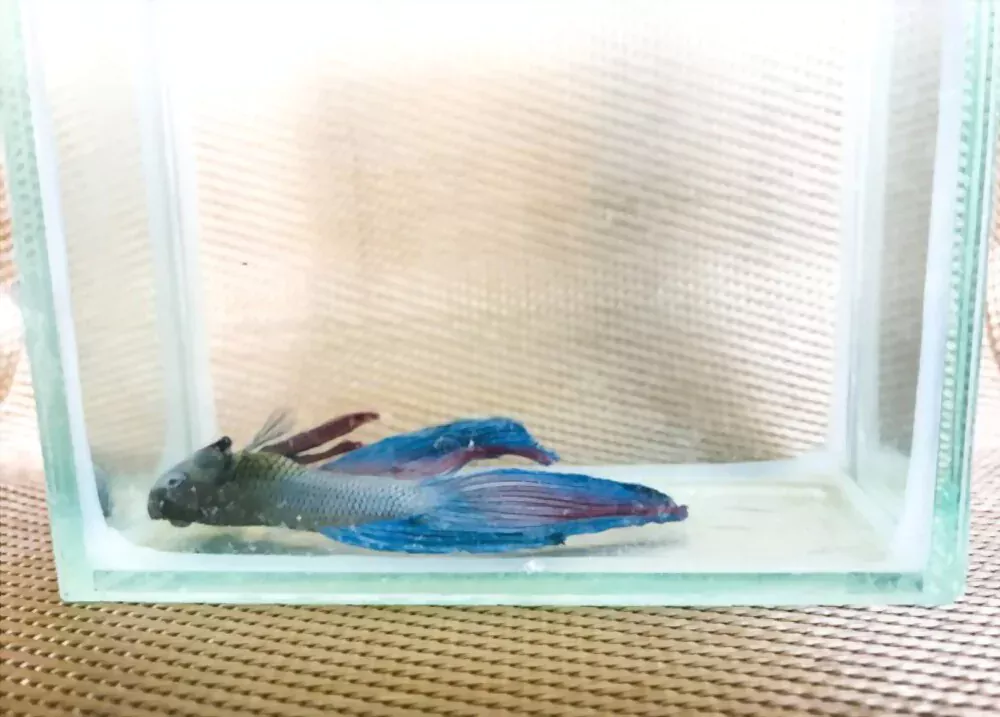
1- Hyperthermia
Hyperthermia is the most common disease seen in bettas that have been exposed to cold water. This is caused by a decrease in the body’s ability to regulate its temperature, which can lead to organ failure and death.
2- Fin Rot
Fan fin rot is another common disease in betta fish that have been exposed to cold water. It occurs when the fish becomes too hot and has difficulty shedding excess heat through the skin, leading to an increase in body size and tail deformity.
3- Ichthyophthirius
Rapid Ichthyophthirius Infection (RIch-Ich), also called Ichthyophthirius Inflammation, is a bacterial infection that’s often seen in betta fish that have been exposed to cold water for long periods of time or when their water temperature drops below 68 degrees Fahrenheit (20 degrees Celsius). This condition can cause significant damage if left untreated, so it’s important to treat this problem as soon as possible!
Wrapping Up
So, The overall goal should be to keep betta fish at around 75 degrees Fahrenheit. This is a temperature range where the fish will thrive and show few if any, signs of stress. However, this doesn’t mean that water temperatures in this range will always work for every type of betta fish out there. If you’re unsure about how to properly react to your betta’s behavior or health issues, give a vet a call for more information on what might be going on with your particular fish.

